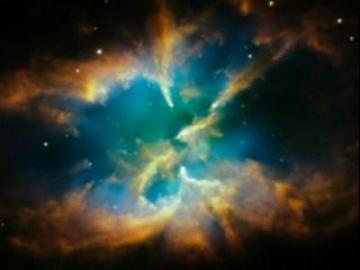'Nostalgia for the Light' explores cosmos, Chilean carnage
The search for celestial bodies and human ones are companionate pursuits in "Nostalgia for the Light," the latest of Patricio Guzman's relentless Chilean documentaries -- and by far the eeriest.
Mr. Guzman takes his search, and his audience, to the highest and driest place on Earth: Chile's immense Atacama Desert, 10,000 feet above sea level. It is a kind of alien planet in itself and the perfect vantage point for telescopes to scan the cosmos for others.
But it was also the perfect place to hide monstrous crimes -- and the evidence thereof. Thousands of those who disappeared after 1973 under the brutal Pinochet military regime were murdered there, their bones long since merged with the arid dirt.
In the film's breathtaking opening, our own moon's lunar craters are ready for their close-ups. Gaspar Calas -- like all astronomers, obsessed with origins -- eloquently explicates the images and the quest for our universe's oldest galaxies. His passion for astronomy is matched by archaeologist Lautaro Nunez's passion for unlocking the secrets of the Atacama's 1,000-year-old rock carvings -- works of art featuring faces of llamas and human beings, every bit as awesome as the more celebrated cave drawings in France.
This is the only spot on Earth with zero humidity, we are told. Which is why its archaeological as well as human remains are, to some extent, intact. Mr. Guzman makes astonishing juxtapositions of ancient pre-Colombian mummies and the semi-mummified bodies of Pinochet's recently unearthed political victims.
But the film is most powerful when showing us those victims' relatives -- exclusively women -- sifting through the sandy, soulless soil for bone fragments or body parts of loved ones killed in Pinochet's Atacama concentration camps (former salt mines) 40 years before. Now in their 70s and 80s, the wives and sisters are still in pursuit, still hoping to locate and lay their men properly to rest.
"It was not a war, it was a massacre," says one woman of the Nixon-Kissinger-CIA-sponsored killing fields. "We cannot forget our dead. We must continue the search. I wish the telescopes didn't just sweep through the stars but through the earth, to help us find them."
Writer-director Guzman ("The Battle of Chile," "Salvador Allende," "The Pinochet Case") and his narrator-experts make the Einsteinian relativist point that "the past is the astronomer's primary tool" and "the present doesn't really exist," in terms of light and the light-years it takes to reach us. The point is even better made by the glorious space vistas from the immense telescopes.
But the magical mystery spaceship-tour keeps crashing back to Earth, as bits of bodies turn up in the desert, destined for cardboard boxes in a Santiago museum/morgue.
Mr. Guzman tries nobly to establish the parallel between the stargazers and the survivors, both searching for revelations in (and from) the vast expanse of the past. The connection is almost, if not quite, made. "Nostalgia for the Light" is beautifully filmed, fascinating and sorrowful. It does offer hope. But all God's glories and all God's holocausts are not a natural thematic match.






